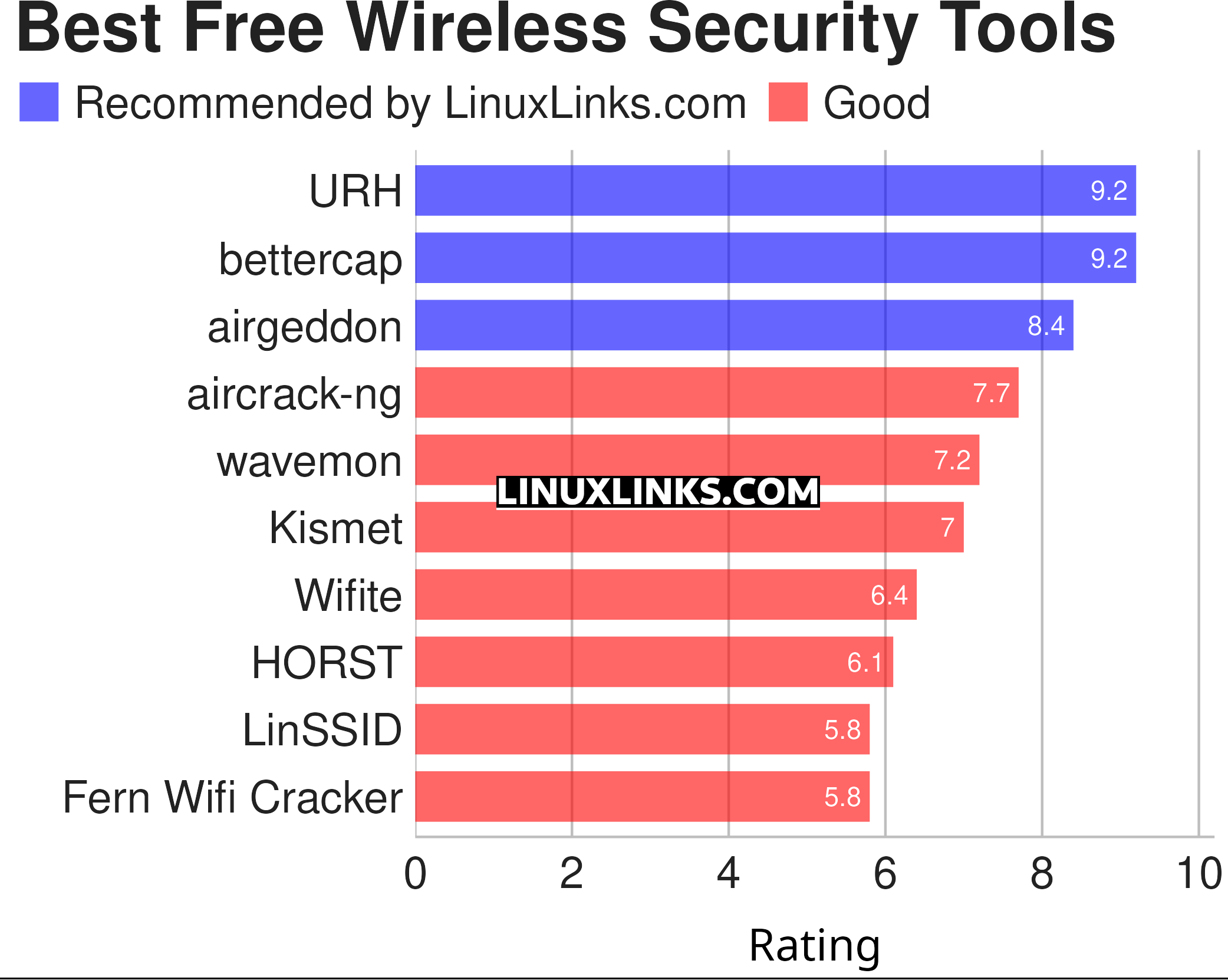Wireless security is the prevention of unauthorized access or damage to computers or data using wireless networks, which include Wi-Fi networks. The term may also refer to the protection of the wireless network itself from adversaries seeking to damage the confidentiality, integrity, or availability of the network.
To improve wireless security it’s important to be aware of measures that are used to bypass security. We cover software that’s useful for penetration testing and security assessment. Target users include security professionals and pentesters.
It’s important to remember wireless security toools are only part of a security solution. They should be used together with other security software such as network firewalls and intrusion prevention systems.
Here’s our verdict on the finest wireless security tools, captured in a LinuxLinks ratings chart. We only feature free and open source software here.

Let’s explore the 10 wireless security tools. For each application we have compiled its own portal page, a full description with an in-depth analysis of its features, a screenshot of the program in action, together with links to relevant resources.
| Wireless Security Tools | |
|---|---|
| URH | Complete suite for wireless protocol investigation |
| bettercap | Swiss Army knife for 802.11, BLE, IPv4 and IPv6 networks reconnaissance |
| airgeddon | Multi-use bash script for Linux systems to audit wireless networks |
| aircrack-ng | WiFi security auditing tools suite |
| wavemon | ncurses-based monitoring for wireless network devices |
| Kismet | 802.11 layer2 wireless network detector, sniffer, intrusion detection system |
| Wifite | Python script for auditing wireless networks |
| HORST | Highly Optimized Radio Scanning Tool |
| LinSSID | Graphical wireless scanning |
| Fern Wifi Cracker | Wireless security auditing and attack software |
This article has been revamped in line with our recent announcement.
 Read our complete collection of recommended free and open source software. Our curated compilation covers all categories of software. Read our complete collection of recommended free and open source software. Our curated compilation covers all categories of software. Spotted a useful open source Linux program not covered on our site? Please let us know by completing this form. The software collection forms part of our series of informative articles for Linux enthusiasts. There are hundreds of in-depth reviews, open source alternatives to proprietary software from large corporations like Google, Microsoft, Apple, Adobe, IBM, Cisco, Oracle, and Autodesk. There are also fun things to try, hardware, free programming books and tutorials, and much more. |

Nice